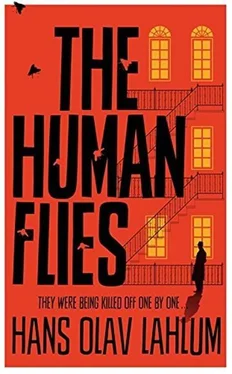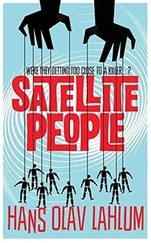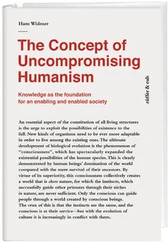I looked at the picture of the caretaker’s wife with her grandchildren and realized that it was true that many other people would certainly have accepted dirtier money for far more dubious reasons than that. So I told her the truth – that on a personal level it was very easy to understand and that we could no doubt overlook the legal implications, as long as it was simply a matter of amending an oral statement. And on the condition that we now and in the future were told the truth and nothing but the truth. The caretaker’s wife was mightily relieved and crossed her heart and promised to do so.
‘The fact that your husband was active in the Resistance during the war is new to me. Was he in contact with Harald Olesen at the time, do you know?’
The caretaker’s wife beamed at the thought of the old days and gave me a proud smile before continuing.
‘But of course I know. It was in fact Harald Olesen who asked my husband to join. I can still remember them shaking hands on it, at the kitchen table right here. I helped a bit myself later on. On several occasions we hid refugees in the cellar, until Olesen found a way to get them over the border to Sweden. Anton was just one of many helpers at the time. Harald Olesen was always on the go and managed to build up a big network between here and the border. I have often thought that he must have been a remarkably strong man to not only have coped with all that responsibility during the war, but also to have managed to live with the memories of everything he had experienced.’
I realized that we might be on to something interesting now – something that could lead to a motive for murder.
‘Given the way things turned out later, did you or Anton ever direct your frustration at Olesen?’
The caretaker’s wife shook her head adamantly.
‘We never felt any ill will towards him. How could we? It was the war, and how could anyone know what would happen to Anton later? We were proud to live in the same building as Harald Olesen, even though we lived in the basement, three floors below him. Even in the past few years, Anton would always pick up and drink less whenever he spoke to his old hero. Olesen never really understood how bad things were with Anton, but he did realize that life was difficult in the basement. And he gave us more and more wonderful presents for our birthdays and Christmas each year. Harald Olesen was a good man, always was, and I haven’t got a word to say against him and cannot understand who would murder him. I cannot think of anyone from the war who might be of importance to the murder, but maybe my husband knows more.’
I nodded. The caretaker, Anton Hansen, who was currently in hospital, was someone I needed to talk to as soon as possible. I only had one crucial question left to ask his wife.
‘But what about Mrs Lund? Did you never think of her?’
‘Of course I thought about her and the baby, and more than once it struck me that what he was doing was an enormous betrayal to them both. But Kristian is a good man, someone who has worked his way up. He works long days and has no doubt found it difficult to live up to the expectations of his parents-in-law. The only time her parents came here, they looked at me and the building in disgust. And Kristian took such good care of his sick mother – the last time she was here, he more or less carried her in. He’s never had a father, you see, so it’s not been easy for him. There is not a bad bone in his wife, and she is very sweet with the child, but she has never been denied anything she wants in life, and she has no idea what it is like to have an alcoholic husband or to grow up without a father. Kristian would have to do something very wrong for me to side with her against him. I have thought many a time that he would be far better suited to the hard-working Swedish student than the doll that he’s married to who has never had a problem.’
I thought to myself that the class war was still alive and kicking, at least in this basement flat in Torshov. And that the more I learned about the residents, the less relations on the stairs were what they seemed. The caretaker’s wife and her ‘absent’ husband could also be far more significant players than I had at first assumed.
The caretaker’s wife smiled sadly when I said that as a matter of procedure, I would have to see all the residents’ bank books, including hers. She got up heavily and pulled a worn red post-office savings book out from a drawer and handed it to me.
‘There is not much to brag about there for a lifetime’s savings, but it is more than I had when Anton was still at home,’ she said, with a tired, tight smile.
I had to agree with her after a quick check. According to her post-office savings book, the caretaker’s wife from the basement had forty-eight kroner in her account, and that really was not a lot to boast about for a hard-working life. All the same, she had managed to save what little she could over the past few months. Five months previously, her balance had been four kroner. Wherever the 250,000 kroner that had disappeared from Harald Olesen’s account in the past year had gone, it certainly was not concealed in this savings account.
I had thought of going up to the Lunds to ask a few questions and then on to Sara Sundqvist, but the caretaker’s wife had noted that Kristian Lund had driven to work around nine, after ringing his secretary and asking her to meet him there, even though it was Sunday. On his way out, he had commented that he was behind with the stocktake and needed some time to himself to think. After a hasty consultation with myself, I decided that Kristian Lund was the next person I should speak to. So I asked the caretaker’s wife to phone him at work. I told him in brief that I had to talk to him as soon as possible, and it would perhaps be just as easy if I came to see him at the sports shop. There was silence on the other end of the line before he took the hint and replied that that would be fine. I told him I would be there in about a quarter of an hour, and he assured me that his secretary would keep an eye out for me and open the door.
The sports shop where Kristian Lund was manager was airy and modern, with double doors and a large display window facing onto a well-frequented street. It crossed my mind that a position as manager here was no doubt well paid and a good springboard for furthering a career in business, but I did not have time to reflect on this. Kristian Lund’s secretary turned out to be a petite blonde of about twenty-five and appeared at the door within seconds. Her body was slim and firm, as was the hand that she held out when she told me brightly that her name was Elise Remmen and that ‘our darling shop manager’ was waiting for me in his office. I followed her shapely back through the shop and down a long corridor of office doors. Elise Remmen enthused that the sports business was on the offensive and that this chain was leading the competition, so several other shops had recently moved their administration here.
On this Sunday, however, it was only in the shop manager’s office that the light was on and the door was open.
Kristian Lund stood waiting with his hand held out over the desk. I struggled to recognize him at first. Secure in his own work environment and with the murder now a few days past, he suddenly gave the impression of being a well-built, relaxed and solid man I could trust. Had it not been for the fact that I had met him before – and had he not been caught in the act of lying.
Kristian Lund held his mask well while his irritatingly nice secretary was in the room. She asked whether I would like a coffee or a tea and smiled so invitingly that I almost said yes. Kristian Lund then informed his secretary in a loud, clear voice that this was simply a matter of routine questions in connection with the murder of his neighbour and asked her to close the door behind her and carry on with the stocktake. She chirped ‘of course’ and flew out of the room, closing the door gently behind her.
Читать дальше











